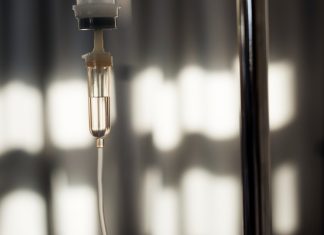Russian biotech company Biocad has launched Phase II clinical trials of its original drug BCD-261 for the treatment of inflammatory bowel diseases, including Crohn’s disease and moderate to severe ulcerative colitis. The trial received approval from the Russian Ministry of Health. The company’s own investments in the development and research of the drug are expected to amount to more than 3 billion rubles, GxP News was told by Biocad’s press service.
The trials aim to assess the efficacy and safety of BCD-261 compared with a placebo. The BCD-261-2/COMANDOR study will involve 510 patients with Crohn’s disease, while the BCD-261-2/ULTRAMARINE study will include 495 patients with ulcerative colitis who previously had an inadequate response to glucocorticoids, immunosuppressants, or biologic therapies. Participants will be aged 18 to 75 years inclusive.
The trials are expected to be held in Moscow, St. Petersburg, Novosibirsk, Kazan, Barnaul, Chelyabinsk, Ufa, Krasnoyarsk, Rostov-on-Don, Vladivostok, and Ulyanovsk.
BCD-261 is an original, first-in-class drug, which, according to Biocad, will offer improved characteristics compared to existing biological therapies, leading to better treatment outcomes.
Previously, the drug was studied in a number of physico-chemical studies and preclinical trials. The drug completed phase I clinical trials involving healthy volunteers, showing a favorable safety profile and good tolerability across all studied doses.
The assessment of pharmacokinetics, pharmacodynamics, and immunogenicity indicates that further clinical development is practical, and the drug should proceed to phase 2 evaluation.
“These days, many patients experience challenges with treatment, including incomplete responses, waning effectiveness over time, or adverse effects. That is why it is necessary to develop new approaches to the treatment of inflammatory bowel diseases, including the development of new drugs,” explained Tatiana Shashurina, Chair of Doverie, the All-Russian Organization for Inflammatory Bowel Diseases and Short Bowel Syndrome.
Biocad added that there may be up to 500,000 patients with ulcerative colitis and Crohn’s disease in Russia, including about 10,000 children. Epidemiological studies have indeed indicated a steady increase in the number of people diagnosed with inflammatory bowel diseases.




